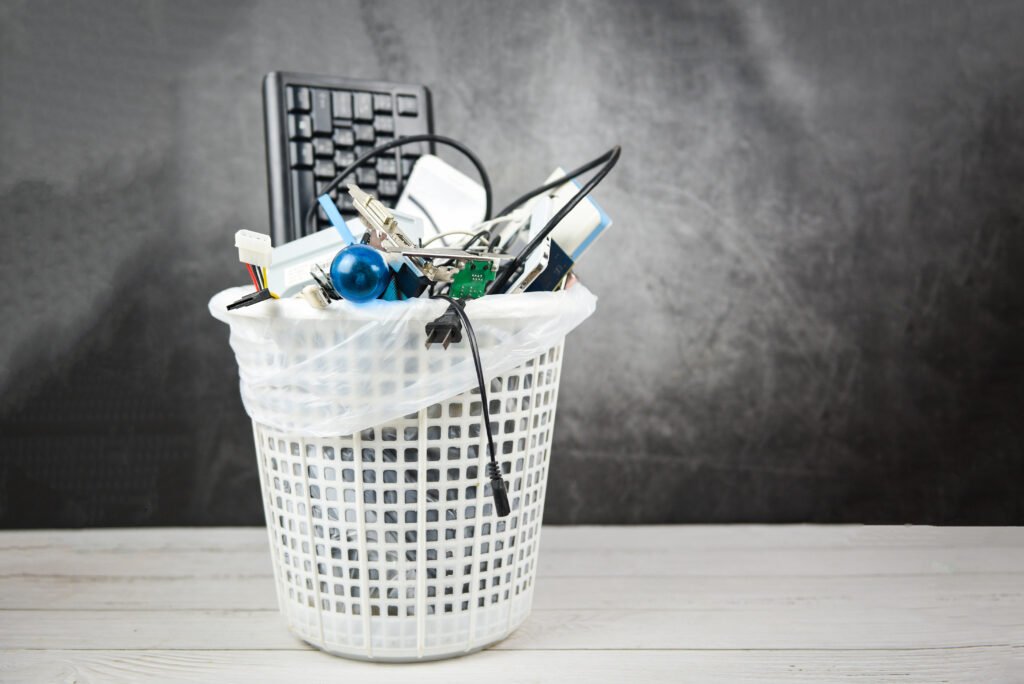On September 21, 2023, India’s Central Pollution Control Board (CPCB) announced the ‘Framework for generation of EPR Certificate under E-Waste (Management) Rules, 2022‘. Under the 2022 rules, producers are required to fulfil their extended producer responsibility (EPR) by purchasing EPR certificates from registered recyclers. Under this framework, three groups were first designated for EPR certificates: precious metals (gold), non-ferrous metals (copper and aluminium) and ferrous metals (including steel and galvanised iron), which are recycled from waste electrical and electronic equipment. The framework indicates the average weight composition of the three groups of metals in the products covered by the 2022 rules, in which the recycling obligation for each metal is calculated and producers have to purchase EPR certificates accordingly.
Below are examples of the average weight composition of metals by covered products (106 products in total).
| Equipment | Code | Average percentage weight composition | |||
|---|---|---|---|---|---|
| Gold | Copper | Iron | Aluminium | ||
| Printers including cartridges | ITEW6 | – | 0.01 | 10 | 1.25 |
| Cellular telephones (Feature phone) | ITEW15 | 0.0015 | 0.85 | 17.02 | – |
| Cellular telephones (Smartphones) | ITEW15 | 0.00157 | 3 | 3 | 7.97 |
| Refrigerator | CEEW2 | – | 0.76 | 24.21 | 4 |
| Fluorescent and other Mercury containing lamps | CEEW5 | – | – | 1 | 1 |
| Electronic display | LSEEW34 | 0.0004 | 0.15 | 24 | – |
Reduction of Gold Recycling Obligations
The capacity of facilities capable of gold recycling in India was found to be less than the total recycling obligation of gold for producers across the country. Considering this, the Framework stipulates that the gold recycling obligation for year 2023-2024 is only 20% of the total. This will be increased annually in the following years, to 30% in year 2024-2025, 45% in 2025-2026, 60% in 2026-2027, 80% in 2027-2028 and 100% from 2028 onwards.
If a producer exceeds its recycling obligation for a product when recycling gold, the producer may opt for one of the following deregulation measures.
- reduce EPR obligation for gold by in the next year for that particular product
- purchase less quantity of non-ferrous metals in that current year
Similar to above, if the obligation is not fulfilled, it can be carried forward to the following year or the non-ferrous metal recycling obligation can be increased for the current year. See original document for the detailed calculation methods and examples.
The obligation to recycle metals in the three groups of metals specified this time is limited to two years from the entry into force of the rules (April 1, 2023). In addition to the above, rare metals and other precious metals are expected to be added in the future.
 India Issues Framework for Generation of EPR Certificate under E-waste Rules
India Issues Framework for Generation of EPR Certificate under E-waste Rules 

























